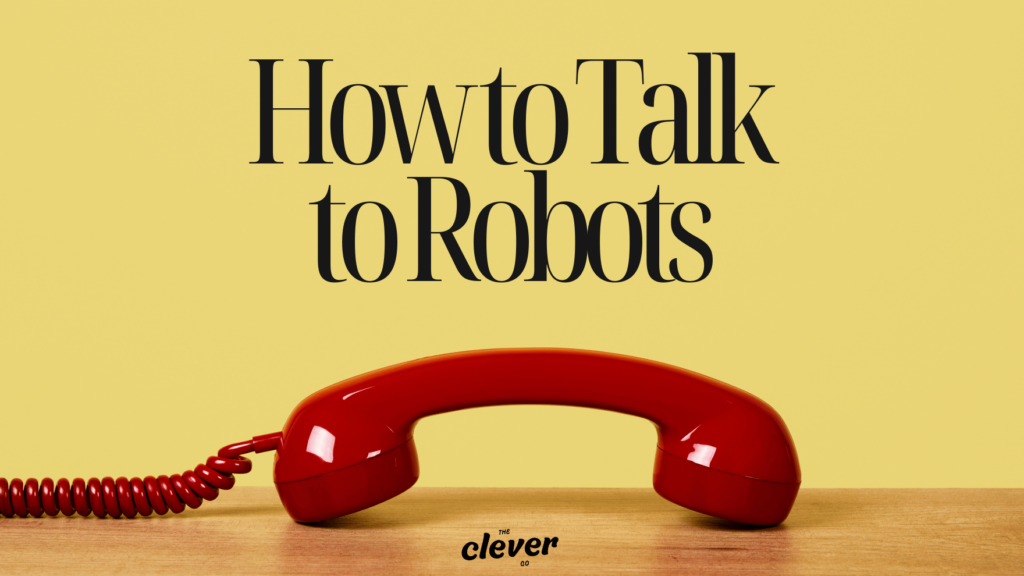You’ve heard the hype about AI. It’s supposed to be this magical tool that can solve all your marketing problems, right? Well, I’m here to tell you that’s not quite the case. Don’t get me wrong, AI is powerful. But without the right perspective, it’s about as useful as a map without a destination.
The Problem with AI’s Endless Knowledge
Here’s the thing: AI has access to an insane amount of information. Ask it how to market your product, and it’ll spit out 20 different tactics faster than you can say “ROI.” But here’s where it falls short:
- It lacks context
- It doesn’t understand your specific needs
- It can’t prioritize what’s actually important for your business
It’s like having a know-it-all intern who can recite textbooks but has never actually run a marketing campaign.
Why Perspective Matters
The missing ingredient? Perspective. AI needs a clear point of view to turn its vast knowledge into something actually useful. Without it, you’re just getting a data dump that’s about as helpful as a typical Wikipedia page.
Think about it: Would you rather get advice from a generic “marketing expert” who gives you a laundry list of every possible tactic, or someone who specializes in your niche and can tell you exactly what works?
Practical Examples: From Data Overload to Targeted Insights
Let’s say you’re launching a new product. Here’s what you might get:
Generic AI Response:
- Conduct market research
- Create a marketing plan
- Use social media
- Run ads
- Do email marketing
- Consider influencer partnerships
- Host a launch event
- Offer pre-orders
- …and 10 more vague suggestions
Overwhelming, right? Now, let’s give AI some perspective:
AI with a Lean Startup POV:
- Develop a minimum viable product to test market demand
- Focus on early adopter acquisition through targeted outreach
- Gather rapid feedback to iterate on the product
See the difference? By giving AI a specific lens to work through, you get focused, actionable advice.
How to Guide AI’s Perspective
Want to get better results from AI? Here’s how to craft prompts that actually work:
- Give it a role: “You’re a marketing consultant specializing in B2B SaaS”
- Define its approach: “Your strategy focuses on organic growth, not paid acquisition”
- Set constraints: “The company has a limited budget and a small team”
- Ask for specifics: “What are the top 3 tactics to generate leads on LinkedIn?”
The Danger of Too Many “Right” Answers
When AI gives you a dozen different approaches without prioritization, it’s not being helpful – it’s paralyzing you with choices. It’s like being handed a map with every possible route marked, but no indication of which one will actually get you to your destination.
Remember: The goal isn’t to know everything. It’s to know what’s important for your specific situation.
Prompt Template: Guiding AI’s Perspective
Use this fill-in-the-blank template to craft prompts that give AI a specific perspective:
“You are a [role/specialization] with expertise in [specific niche/industry]. Your approach to [topic] emphasizes [key value/philosophy]. How would you recommend [specific question/challenge] while staying true to [key constraint/priority]?”
Example:
“You are a social media manager specializing in conscious consumerism brands. Your approach to content emphasizes authenticity and community-building. How would you recommend increasing Instagram engagement for a new sustainable fashion brand, while avoiding anything that could be perceived as greenwashing?”
The Bottom Line
AI is a tool, not a magic wand. It’s up to you to give it direction. By framing your prompts with a clear perspective, you can turn AI from an information firehose into a strategic partner that delivers insights tailored to your business.
Remember:
- Focus beats breadth every time
- A strong point of view turns knowledge into actionable insights
- The best AI isn’t the one that knows everything; it’s the one that knows what’s important for you
Now go out there and make AI work for your business, not the other way around.





